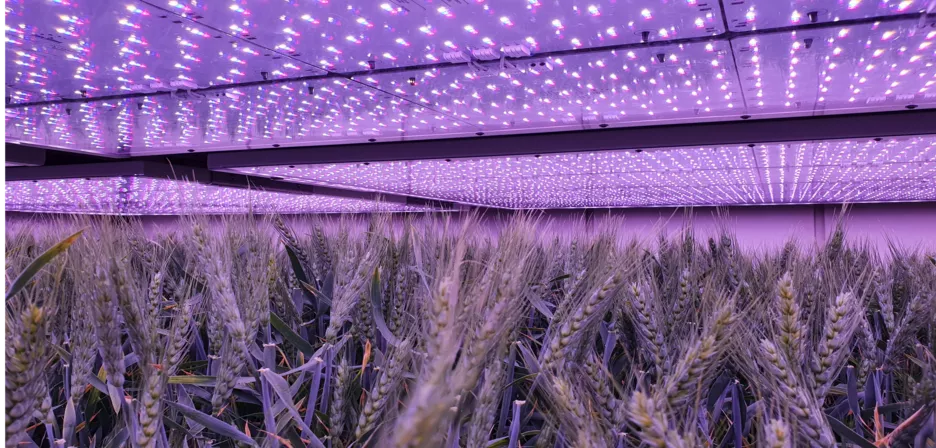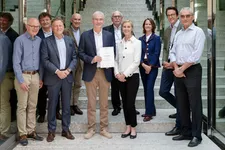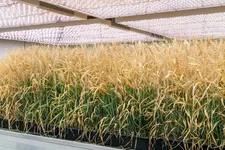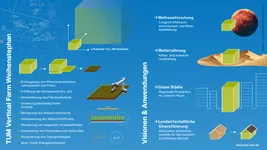Vertical Farming
Vertical farming is an opportunity to produce large quantities of food with consistent quality, at any time of the year, on small areas and close to consumers. In vertical farms, all growth factors such as light (intensity, duration and spectrum), temperature, humidity, CO2 levels, ventilation, water and nutrients can be controlled and optimized. At the same time, weeds, pests and diseases can be excluded, eliminating the need to use pesticides and herbicides. Water and fertilizer use can be drastically reduced, with 90% of water reused and 60% less fertilizer needed per yield. This allows vertical farms to consistently produce high quality, fresh and healthy food close to the consumer, with minimal waste as part of a future circular economy.
Vertical farms currently consume a lot of energy. There is also a high need for research in plant growth optimization, computerized control and technical implementation, including automation. There are close links to nutrition and food sciences at the Weihenstephan campus, e.g. on questions of quality (taste, ingredients, etc.) of the food produced.
Experiments with wheat and soybeans are carried out in the vertical farming chambers at the Dürnast station on the TUM-Weihenstephan campus.



